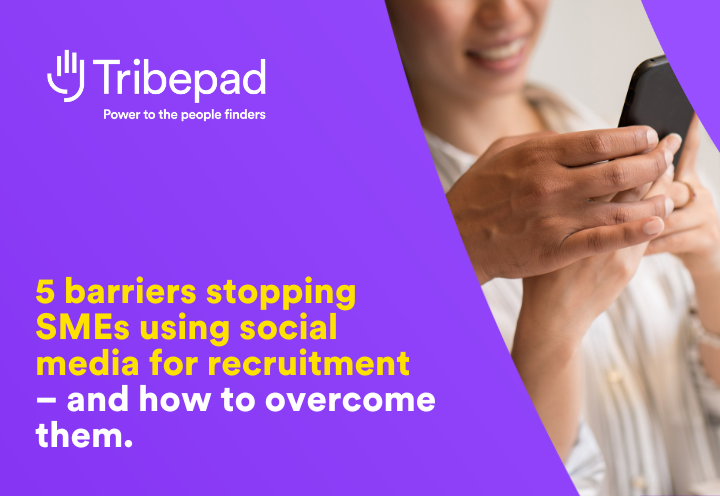It all started with some mutterings in tech that maybe cuts would need to be made as the economic crisis hit and rising rates of inflation pushed costs up. By the end of January 2023 four of the biggest tech companies – Meta, Alphabet, Amazon and Microsoft – had cut 50,000 jobs. LinkedIn, Twitter, Accenture and Yahoo have all followed, and the numbers now run into the hundreds of thousands. In fact our latest report Salary vs Security shows that 29% of people are worried about losing their jobs.
So when the world is saying to cut jobs, why are we saying you need to keep hiring in an economic crisis? Seems counterintuitive doesn’t it?
It all comes down to short term vs long term thinking. Businesses who continue to hire know that at some point the recession will end, and the world will have to carry on. What they do now will lay the foundations for what happens next – and they need to keep their reputation intact.
Evidence of this comes from the Great Depression in the 1920s. If we think of recruiting as marketing and advertising, which in many ways it is – come work for us, see my brand, we’re the best company to work for – Field & Binet have some evidence to show why we should continue doing it. In The Long & The Short of It, published in 2013, they show the difference that advertising makes. Compared to companies who decreased advertising, those who increased, saw an 25% uplift in revenue from 1920 to 1924. Mark Ritson explains that it’s because of having an excessive share of voice – everyone else has cried off, but you’re still there singing.
So why does recruiting during an economic crisis/recession work?

Ensure long term growth
While a recession might lead to short-term financial challenges, businesses need to think about their long-term goals and strategies. If a business stops hiring, it could face talent gaps in the future when the economy recovers. By continuing to hire and invest in employees during a recession, you’ll gain a competitive edge. Once the economy starts to recover, businesses with a strong, skilled workforce will be in a better position to take advantage of new opportunities. And if you’ve been quiet, and have a reputation for being a poor employer in the bad times, why would anyone come to you when times are good?
Access to the best
The fact that there have been such a raft of layoffs and job cuts in many industries means that there may be a larger pool of highly skilled and experienced workers looking for jobs. So you might be lucky to be able to hire top talent that they might not have access to during periods of economic growth. It’s not taking advantage, it’s about seizing an opportunity. The great Ayrton Senna once said you can’t overtake 15 cars in sunny weather, but you can when it’s raining. Keeping going with recruitment can truly reinforce your position throughout the economic crisis.
Boost confidence
Continuing to hire can also help maintain employee morale during tough times, showing the business’s commitment to its workforce. It can also positively impact the company’s external image, showing resilience and a long-term commitment to growth, and demonstrates that you’re a company that cares about its people.
Innovation and evolution
Tough economic times often require businesses to innovate and adapt. Hiring new employees with different skillsets can bring fresh perspectives and ideas to the business, helping it to navigate through the crisis and potentially even find new opportunities for growth. If you’re left with stale minds who always do the same thing, the chances of you recovering successfully and on a high note are slim.
Empty chairs cost money
Even in economic uncertainty, businesses still need a certain level of staff to maintain operations. To prioritise workforce planning be clear about the problems, and their costs. Empty chairs cost $247 in lost revenue a day, and on average for every employee out of work, there are 128 empty chair days. It’s costly not recruiting.
So how do you make the case for investing in recruitment software?
When you’re building a business case, you need to be aligned to business goals. Goals which presumably include growth. Identify and speak to key stakeholders priorities – which includes with data demonstrating why not investing hurts. Better recruitment often needs better tech, so explain the benefits, such as increased efficiency, improving diversity and bias, and reducing administrative time.
We recognise that there is understandable caution in the boardroom. Talent acquisition leaders must clearly articulate the value, and doing so with a data and numbers driven approach helps you deliver iterative gains and get what you deserve.
Tribepad is the trusted tech ally to smart(er) recruiters everywhere. Trusted by private and NHS healthcare organisations like Bupa, Signature, GCRG Care Group, Turning Point, NHS Professionals and Royal Devon University Healthcare NHS Foundation Trust, 25-million people in 16 languages use Tribepad.




